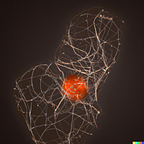Pointers: The Power and Pitfalls of Direct Memory Access in Programming
Pointers are a fundamental concept in computer programming that enable direct access to memory. They offer powerful features, but also come with some risks if not used correctly. In this blog post, we’ll explore the basics of pointers and how they work, their advantages and disadvantages, and best practices for using them in your code.
What are Pointers?
A pointer is a variable that stores the memory address of another variable. In other words, it “points to” a specific location in memory where data is stored. The data stored at that memory address can be a simple data type like an integer, float, or character, or a more complex data structure like an array or struct. By using pointers, you can indirectly access and manipulate the data stored at that memory address.
How do Pointers Work?
Pointers work by using the memory address of a variable. In most programming languages, you can obtain the memory address of a variable using the “address-of” operator, which is represented by the “&” symbol in C and C++. For example, if you have an integer variable named “x” with the value 10, the following code will print the memory address of that variable:
To use a pointer to access the data stored at a memory address, you first need to declare a pointer variable. The syntax for declaring a pointer in C and C++ is to use the “*” symbol followed by the name of the pointer variable. For example, the following code declares a pointer to an integer:
Once you have declared a pointer variable, you can assign the memory address of a variable to the pointer using the “address-of” operator. For example, the following code assigns the memory address of the “x” variable to the “ptr” pointer:
ptr = &x;
Once the pointer has the memory address of a variable, you can access the data stored at that memory address using the pointer. For example, the following code prints the value of the “x” variable using the “ptr” pointer:
Advantages of Pointers Pointers offer several advantages in programming, including:
Dynamic Memory Allocation: Pointers enable you to dynamically allocate memory during runtime, which is useful for creating data structures like linked lists, trees, and graphs that can change in size.
Data Sharing: Pointers allow you to pass data between functions, which is useful for creating reusable code. For example, you can pass a pointer to a function that then modifies the data stored at the memory address pointed to by the pointer.
Efficient Data Structures: Pointers enable you to create data structures like linked lists and trees that are more efficient in terms of memory usage and processing time compared to arrays and other data structures.
Disadvantages of Pointers
Pointers also come with some risks and disadvantages, including:
Memory Leaks: If you don’t properly manage the memory that you dynamically allocate using pointers, it can result in memory leaks, which waste system resources and can eventually cause the program to crash.
Buffer Overflows: If you don’t validate the size of buffer
